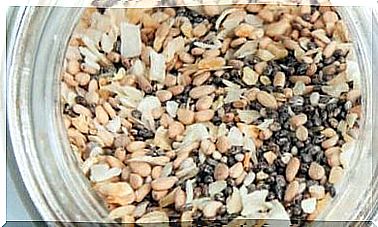Glyphosate Affects Your Intestinal Bacteria
Behind the health problems that cause alterations of the microbiota could be a hidden factor: exposure to glyphosate, the herbicide most used in agriculture today.

Glyphosate is one of the most widely used herbicides in agriculture and, according to Stephanie Seneff, a researcher at the Massachusetts Institute of Technology, alters the microbiota and is probably behind the epidemic of gluten sensitivity, diabetes, Alzheimer’s, Crohn’s disease and many other diseases .
Glyphosate, enemy of the microbiota
This glyphosate effect is explained in a study published in Entropy in 2013 with independent researcher Anthony Samsel .
The researchers suggest that the herbicide interferes with the synthesis of aromatic amino acids by the microbiota, prevents the transport of sulfur compounds and inhibits a detoxifying enzyme (cytochrome P450). These biological actions could trigger the processes that lead to many neurological degenerative and metabolic diseases.
One of the arguments used to defend that glyphosate does not affect human health is that in plants it acts by a metabolic route that does not exist in animals: the shikimic acid route, necessary to synthesize the essential aromatic amino acids (phenylalanine , tyrosine and tryptophan).
However, according to Seneff and Samsel, this route is present in intestinal bacteria. Given the important functions that the microbiota fulfills in the body – helping digestion, synthesizing vitamins, eliminating toxins, modulating immunity or preventing intestinal permeability – it does not seem unreasonable to suspect that the impact of glyphosate on intestinal bacteria may have harmful effects In the health.
More trouble removing toxins
The inhibition of cytochrome P450 by glyphosate is, according to the authors, another factor in its toxicity in mammalian animals to which little attention is usually paid. This enzyme fulfills fundamental biological functions, including that of eliminating toxic chemical compounds from the body.
This implies that glyphosate could aggravate the damage caused by other chemical residues and environmental toxins present in food.
Europe calls for its ban
At the end of the year, the European Union reviewed the legal status of glyphosate (the main ingredient in the pesticide Roundup, from Monsanto, owned by Bayer) and has decided to renew the license for its commercialization for another five years, after which it should be withdrawn from the market. .
European governments disagree on the need to ban it. Experts from France and the Netherlands, for example, are in favor and their role has been decisive in limiting the period for which the license is renewed.
The only way to reduce glyphosate poisoning is to prefer organic food.









